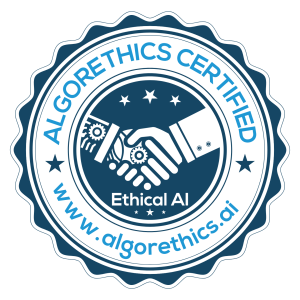In an era where artificial intelligence (AI) is reshaping economies, security systems, and cultural identities, nations face an urgent imperative: safeguarding their digital autonomy. Enter the concept of AI sovereignty—the ability of a country to independently develop, deploy, and regulate AI technologies in line with its own values and interests. The path to achieving this sovereignty is complex, but essential. At the heart of this movement is a strategic framework we call SovereignGuard, a national blueprint designed to empower states to reclaim control over their digital futures.
The Rising Importance of AI Sovereignty
AI systems are increasingly embedded in critical infrastructure—from healthcare and finance to defense and public policy. When these technologies are developed and hosted abroad, nations become reliant on external powers for the tools that drive decision-making, monitor citizens, and shape public discourse.
AI sovereignty is more than a technical objective—it’s a declaration of digital independence. It ensures that algorithms deployed within a country are accountable to its legal frameworks, cultural norms, and democratic principles. Without sovereignty, countries risk being passive consumers of AI products that may not reflect their ethical standards or societal priorities.
Designing a National AI Strategy
Achieving AI sovereignty starts with a robust national AI strategy. This strategy must go beyond industrial competitiveness to include governance, research independence, and public trust.
Key components of a resilient strategy include:
- Domestic Infrastructure Investment: Developing national cloud platforms, high-performance computing resources, and local data centers reduces reliance on foreign infrastructure.
- AI Talent and Education Pipelines: Building a skilled workforce through STEM education, AI research hubs, and public-private partnerships ensures long-term innovation capacity.
- Sovereign Data Policy: Nations must retain control over critical datasets by establishing clear rules for data localization, access, and cross-border flows.
- Open-Source and Interoperability Standards: Supporting open-source AI tools and transparent model governance minimizes dependence on proprietary foreign systems.
Embedding Ethical Digital Policy
Technology cannot be sovereign unless it is also ethical. Nations must craft an ethical digital policy that integrates human rights, inclusivity, and democratic oversight into AI development and deployment. This includes:
Algorithmic Transparency: Ensuring citizens and regulators can audit and understand how AI decisions are made.
Bias Mitigation: Creating legal and technical safeguards against discrimination in AI systems.
Citizen Participation: Enabling public input into national AI decisions to align technology with social values.
Cross-border Ethics Diplomacy: Engaging in global dialogues to set norms and standards that protect digital rights while respecting national differences.
SovereignGuard in Practice
Several countries are already advancing SovereignGuard principles. The European Union’s AI Act emphasizes legal accountability and human-centric AI, while India’s Digital Personal Data Protection Act reinforces control over citizen data. Meanwhile, Brazil and South Korea are investing heavily in national AI cloud and chip manufacturing capabilities.
A successful SovereignGuard framework adapts to local contexts but maintains core principles: self-reliance, transparency, ethical integrity, and international cooperation.
Conclusion: Building the Future on National Terms
In the face of accelerating technological change, AI sovereignty is no longer optional—it is foundational. A proactive national AI strategy, grounded in ethical digital policy, enables nations to shape their digital future rather than be shaped by it.
SovereignGuard isn’t just about defense—it’s about design. It’s the call for each nation to define AI not merely as a tool of efficiency, but as a reflection of its values, its people, and its sovereignty.







